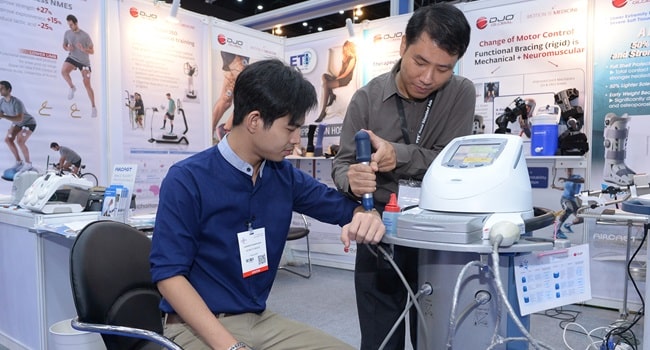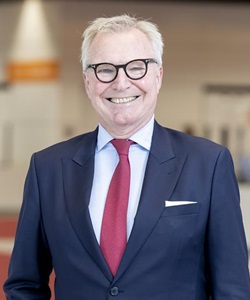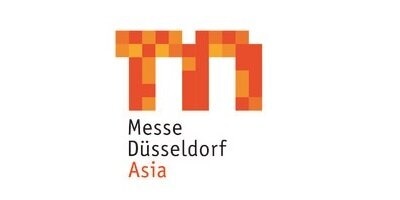As the aging population and aspirations for better medical care is on the rise in Southeast Asia, no wonder there’s a need to have better avenues in healthcare that are tech savvy and also outcome-driven. Exhibitions such as Medical Fair Thailand give us a glimpse of what is in store for those who are wanting to step-up from the present. Here’s a quick question-answer session that takes us deeper into what the fair brings with it.
Q.1 With Southeast Asia’s ageing population growing faster than the global average, how can initiatives like MEDICAL FAIR THAILAND — under the MEDICARE ASIA portfolio— accelerate policy development and infrastructure readiness to meet future healthcare demands?
Southeast Asia’s rapidly ageing population presents both a challenge and an opportunity for healthcare systems — and the time to act is now. Initiatives like MEDICAL FAIR THAILAND, under the MEDICARE ASIA portfolio, play an essential role in accelerating policy and infrastructure readiness by serving as a neutral and collaborative platform where government bodies, healthcare providers, innovators, and investors converge. Through carefully curated forums, industry panels, and technology showcases, the exhibition fosters meaningful dialogue around eldercare models, age-friendly infrastructure, and policy innovation. It also highlights real-world solutions — from digital health tools and AI-assisted home care to smart hospital design and rehabilitation technology — that can be integrated into national healthcare frameworks.
In doing so, MEDICAL FAIR THAILAND acts as both a regional catalyst and connector, empowering stakeholders to move from discussion to action. It allows public and private sectors to co-develop ideas, benchmark against international best practices, and identify scalable innovations that address the demands of an ageing society. Ultimately, it’s not just about introducing technology — it’s about building the ecosystem of care, access, and infrastructure needed to ensure healthy ageing across Southeast Asia.
Q.2 Can you highlight how a local innovator from the Community Care Zone — such as TiMOTION — is helping to shape the future of elderly care, and how platforms like MEDICAL FAIR THAILAND are accelerating their growth and impact?
While we may not single out one definitive case, what we consistently see at MEDICAL FAIR THAILAND — particularly within the Community Care Zone— is how local and regional innovators are rapidly gaining traction and shaping the future of elderly care. One example is TiMOTION, a returning exhibitor known for their medical actuation systems used in adjustable beds, patient lifts, and ergonomic rehabilitation equipment. Their participation in MEDICAL FAIR THAILAND has helped them stay closely connected to real-world clinical needs, gain valuable feedback from healthcare professionals, and tailor their solutions for the Southeast Asian market — where mobility, accessibility, and home-based care are top priorities. Through platforms like the Community Care Zone, companies like TiMOTION are empowered to not only showcase their technology but also refine it in response to evolving patient care models, especially in the context of ageing societies. By facilitating these kinds of face-to-face exchanges and market exposure, MEDICAL FAIR THAILAND helps turn promising solutions into scalable impact stories — often long after the exhibition concludes.
In essence, the success is in the ecosystem — where innovators, healthcare providers, and end users can connect, co-create, and accelerate the transformation of elderly care delivery across the region.
Q.3 Tell us how home-based rehabilitation solutions can decrease the strain on the overburdened healthcare systems while at the same time maintaining the quality of care.
Home-based rehabilitation is fast becoming an essential part of healthcare delivery — especially in ageing societies where healthcare systems are facing rising demand, workforce shortages, and infrastructure constraints. By shifting parts of the recovery process from hospital to home, these solutions significantly reduce pressure on healthcare facilities, free up bed space, and allow hospitals to prioritise acute care. More importantly, home-based rehab does not compromise on care quality — in fact, it often improves it. With the support of tele-rehabilitation platforms, wearable monitoring devices, and AI-enabled therapy tools, patients can receive continuous, personalised care in a familiar environment. This often leads to better recovery outcomes, improved patient satisfaction, and lower readmission rates.
At MEDICAL FAIR THAILAND 2025, visitors will have the opportunity to explore innovations in this space — from remote physiotherapy solutions and interactive rehab robotics to connected health platforms that empower both patients and clinicians. These technologies are reshaping how we view post-acute care and enabling a more sustainable, decentralised healthcare model that is well-suited for Southeast Asia’s demographic realities.
As healthcare systems evolve, home-based rehabilitation will be a key pillar in delivering scalable, efficient, and patient-centred care — helping us move towards a model that’s not only more accessible, but also more resilient.
Q.4 How will the Community Care Zone at MEDICAL FAIR THAILAND go on to address the distinct healthcare gaps that are faced by Southeast Asia’s growing ageing population, especially when we talk of rural vs. urban regions?
[Pls refer to response for Q.2]

Q.5 What role does cross-sector collaboration play when it comes to designing sustainable elderly care models in the region?
Cross-sector collaboration is essential in building sustainable elderly care models across Southeast Asia. The needs of ageing populations are complex, requiring coordinated input from not just healthcare providers, but also tech companies, public health bodies, investors, and social care providers. Sustainable solutions emerge when these sectors work together to align innovation with policy, infrastructure, and community needs.
This is exactly what MEDICAL FAIR THAILAND facilitates — by bringing these diverse players together under one roof. The show supports both top-down (policy-driven) and bottom-up (innovator-led) approaches, fostering collaboration between government stakeholders, medical institutions, and start-ups shaping the future of eldercare. Dedicated zones like Community Care and LaunchPad create a space for these conversations to happen — whether it’s scaling new tech, shaping policy frameworks, or co-developing service models.
In a region where the ageing rate is outpacing global averages, it’s this kind of integrated, multi-stakeholder collaboration that will drive real, long-term impact.
Q.6 How does MEDICAL FAIR THAILAND serve as a platform to spotlight emerging AI and digital health innovations that support elderly care, and foster discussion around barriers to adoption in Southeast Asia?
MEDICAL FAIR THAILAND serves as an essential platform to spotlight emerging AI innovations that are redefining elderly care — from intelligent fall detection systems and remote patient monitoring to AI-powered diagnostics and predictive analytics for chronic disease management. As Southeast Asia faces both a rapidly ageing population and uneven access to healthcare infrastructure, these innovations hold great promise — but adoption is often held back by factors such as cost, lack of digital literacy, regulatory gaps, and integration challenges across healthcare systems.
That’s where MEDICAL FAIR THAILAND plays a unique role. By bringing together global medtech players, start-ups, healthcare providers, and policymakers, the exhibition creates an environment where these conversations can happen — whether it’s through technology showcases, expert-led conferences, or one-on-one business matchmaking.
For example, at the 2025 edition, the Community Care Zone will feature a wide range of smart technologies designed to enhance elderly care delivery in both clinical and home-based settings. These innovations are not only presented for visibility but also for feedback, collaboration, and regional alignment — particularly important in Southeast Asia’s diverse and fast-evolving healthcare landscape.
In short, MEDICAL FAIR THAILAND doesn’t just exhibit new technologies — it brings the ecosystem together to explore how we can collectively overcome adoption barriers and build a future-ready, inclusive model for eldercare across the region.


















